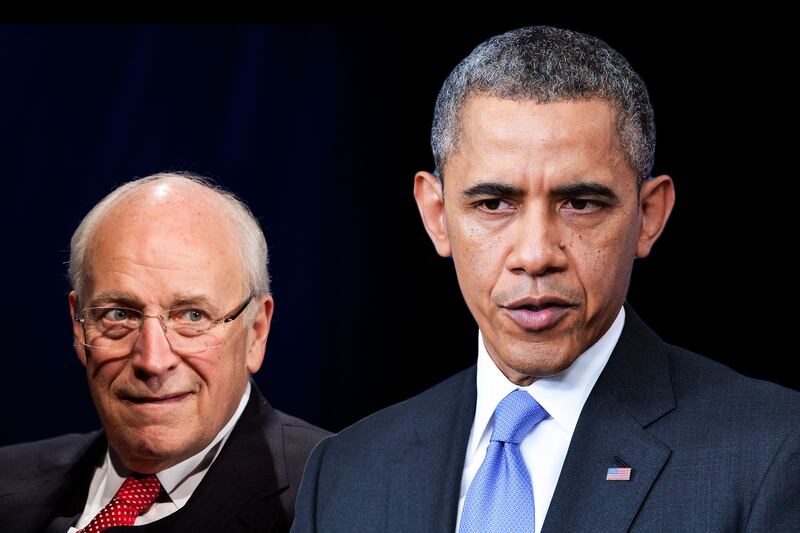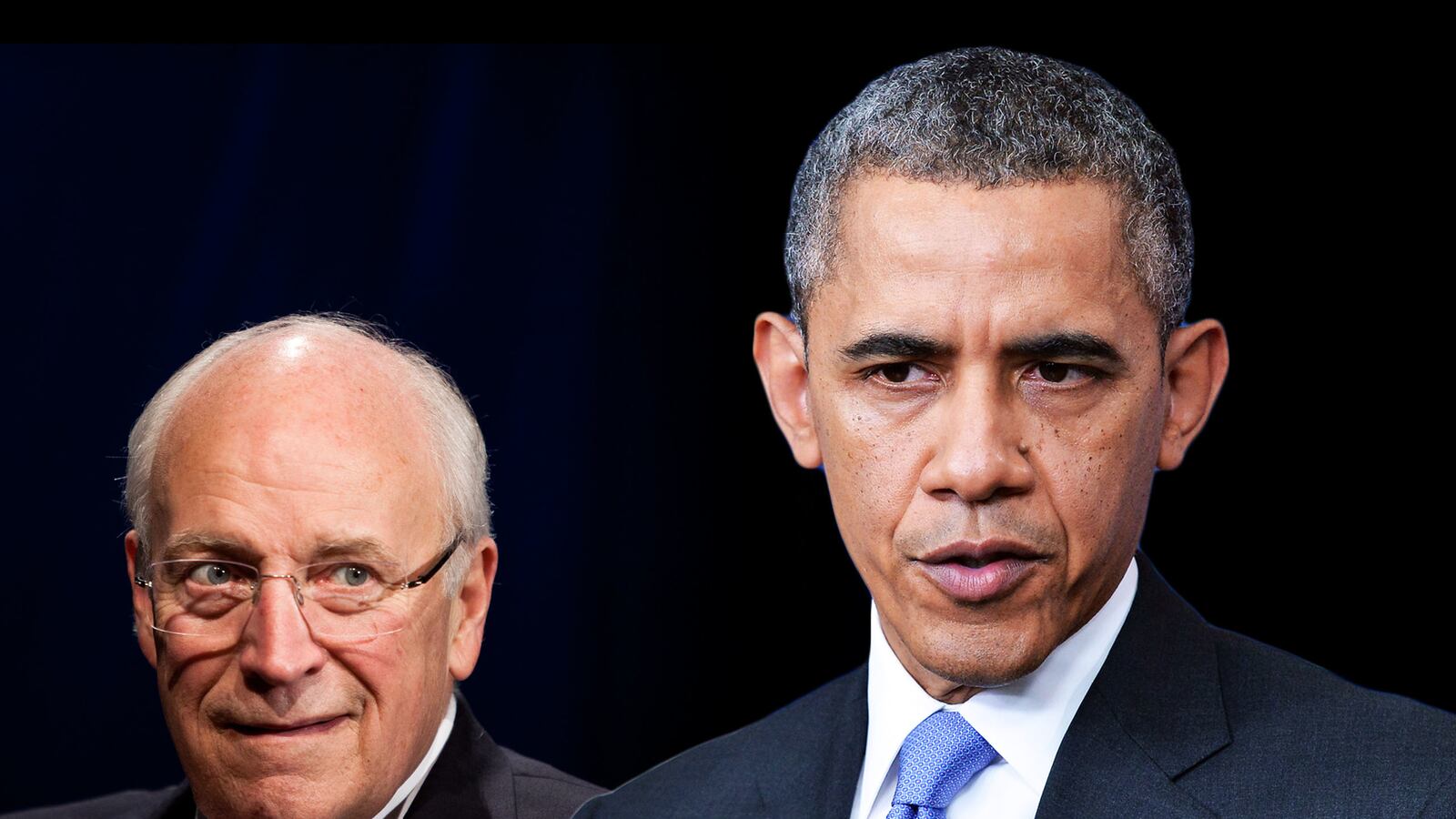Hey Congress, you remember that law that you passed 13 years ago that says the president can kill, capture and detain al Qaeda and other terrorists? Well thanks for playing, but it turns out we don’t need it.

That was the message from two of the top lawyers from the Obama administration Wednesday at a hearing on the font of the president’s authority to wage a shadow war all over the world against Islamic extremist groups.
At issue is the 2001 Authorization for the Use of Military Force (AUMF). The bill was introduced in Congress three days after the 9/11 attacks when the Pentagon and World Trade Center were still smoldering. But with 60-odd words the AUMF has been the legal justification for everything from the continued detention of suspected terrorists at Guantanamo to drone strikes in Somalia and Yemen for both the Obama and George W. Bush administrations.
It turns out that the government’s top lawyers don’t think Obama really needs it these days. On Wednesday, Mary McLeod, the State Department’s principle deputy legal adviser said the president could continue to conduct counter-terrorism operations today even if the AUMF was repealed. Asked by Sen. Bob Corker, the Republican ranking member on the Senate Foreign Relations Committee, if the 2001 AUMF was repealed “can the president carry out the counter-terrorism activities he is carrying out today?,” McLeod responded, “Yes I believe he could.”
Stephen Preston—the Pentagon’s General Counsel who was also at the hearing Wednesday—was more explicit: “I am not aware of any foreign terrorist group that presents a threat against this country that the president lacks authority to defend against simply because they are not covered by the AUMF. If the group presents a threat the president does have authority to take steps against that threat.”
Both McLeod and Preston said that the Constitution’s Article II gives the president all the authority he needs to take military action against any threat that he considers to be imminent. This was also the view of David Addington, the chief counsel to Vice President Cheney who argued that the constitution’s inherent wartime powers granted to the president authorized the detention, interrogation, capture and lethal strikes that comprised the war on terror after 9/11.
The hearing comes as many of Obama’s top generals and spies are worried the president and Congress no longer have the will to keep waging a long and expensive war with no immediate end in sight. Obama in many ways has sought to wind down that war in his second term. Last year in a landmark speech at the National Defense University, he said he looked forward to working with Congress to revise and ultimately revoke the AUMF from 2001.
And this is why the testimony from McLeod and Preston was so extraordinary.
Several senators at the hearing were flabbergasted at their answers. Exasperated at one point, Corker asked, “Well do we need an AUMF or not?” Even Democrats were taken aback. When the two government lawyers declined to say whether the Constitution’s Article II powers would allow the president to wage a war against a sovereign state that harbored a terrorist group without explicit authorization from Congress, Sen. Chris Murphy said he was troubled. “I would love a clear indication that if a nation does not pose an imminent threat, whether you have to go congress to attack them,” he said.
Robert Chesney, an expert in national security law and a professor at the University of Texas Law School, said the testimony Wednesday was important. “Today's testimony confirms what several prior speeches by administration officials hinted at: the authority to use lethal force exists under article II, even without the AUMF, if the group at issue poses a sufficient threat to American lives,” he said. “In practical terms, that means the current practice of drone strikes in Yemen could likely continue as is.”
The one area Chesney argues would be affected by the revocation of the AUMF would be the detention of suspected terrorists at the detention facility at Guantanamo Bay. Preston declined to say at the hearing whether the revocation of the AUMF would mean the United States would have to close that facility.






